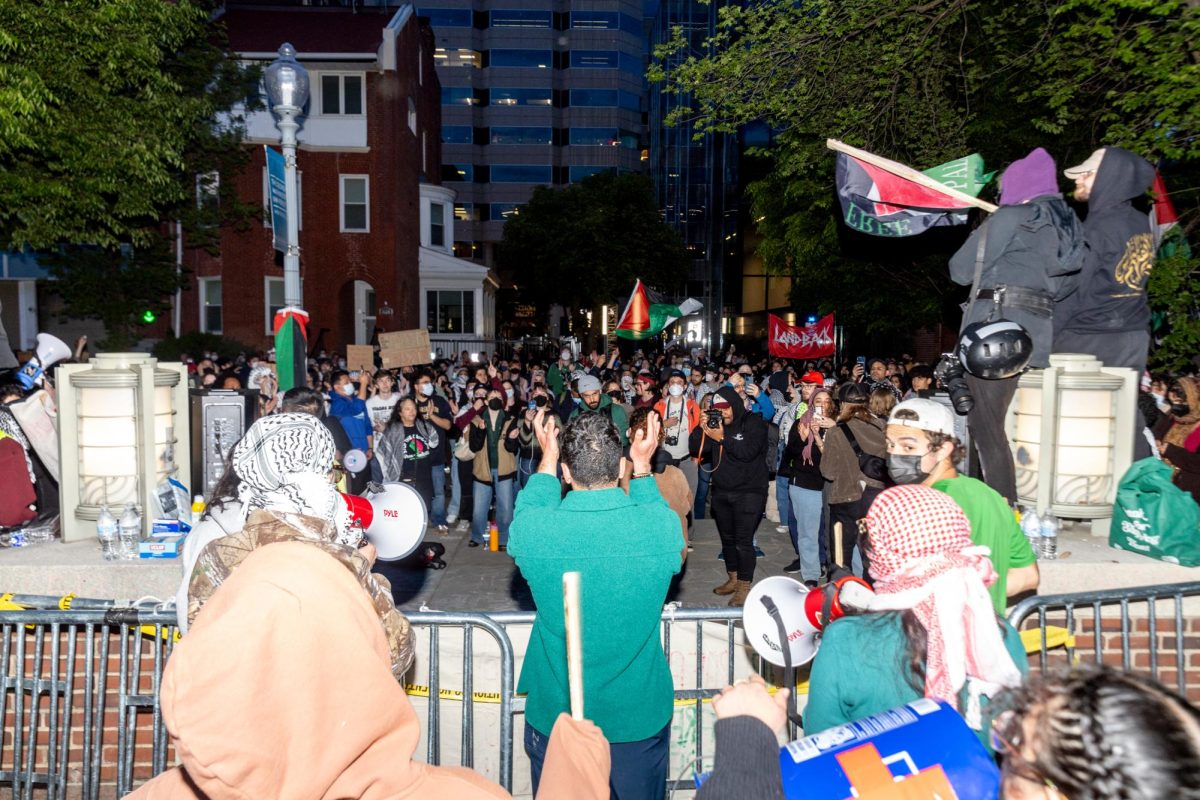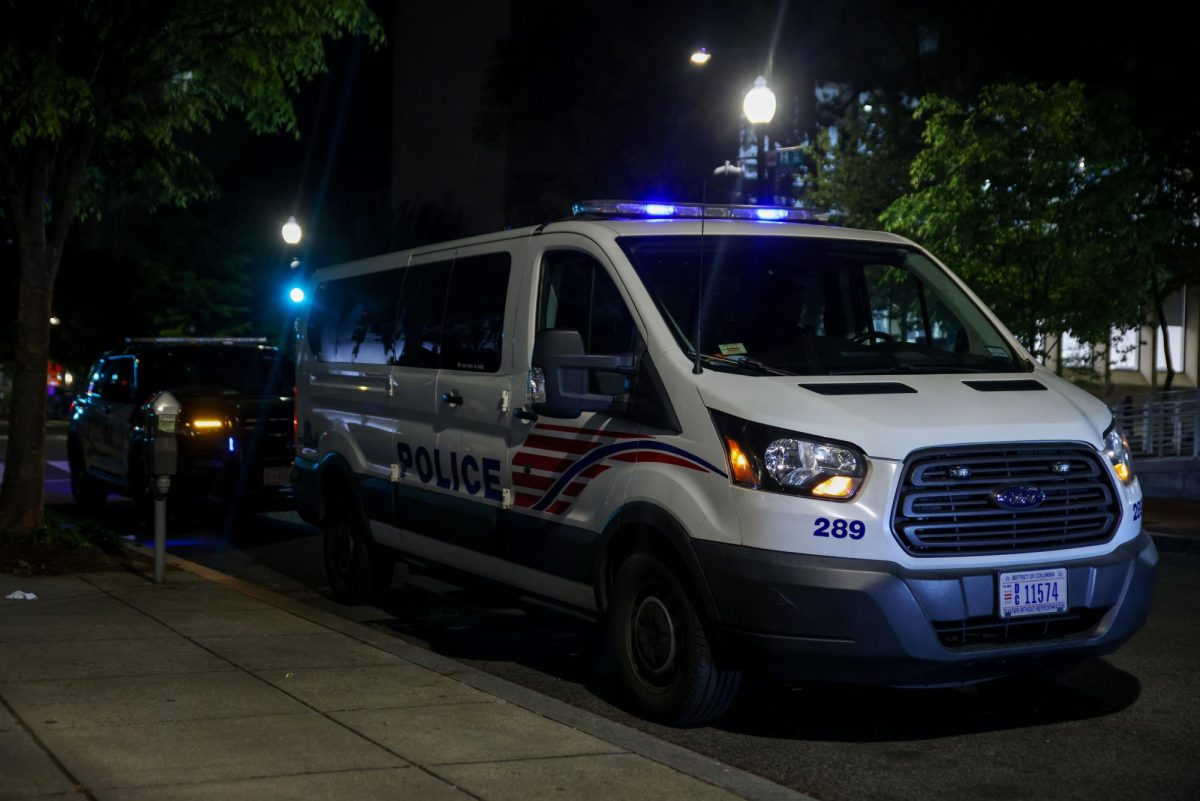Aman Turkel wept as he spoke to GW students and others Thursday evening about his torture and heinous treatment at the hands of the Chinese government. Turkel spoke through an interpreter in Lisner Hall, recounting his experiences with brutality in a Chinese prison and what he described as Chinese “persecution” of his native people, the Uyghurs.
Turkel, who used a pseudonym because he fears reprisals from the Chinese government for speaking out against the treatment of his people, lives in the United States. He was arrested in 1995 for organizing what he described as a Chinese YMCA.
“It was nothing political,” Turkel said. “The Chinese government fears any form of organized gathering and that is why I was arrested.”
Turkel came to speak to the assembly at GW through an organization called the Uyghur Human Rights Coalition.
“Our main goal is to get a coalition to give support. The situation demands responsibility,” said Faisal Matadar, president of the GW Muslim Students Association. Several members of the MSA attended the event.
“We are trying to develop a grassroots organization to raise awareness of this issue,” said Kathy Polias, a third-year law student at Georgetown University Law Center and executive director of the Uyghur Human Rights Coalition. “We are trying to replicate what has been done so successfully with the Free Tibet movement across the nation’s campuses.”
Coalition organizers said raising awareness is the key to affecting change in the world.
Turkel used the same alias when he testified before the U.S. Senate about his captivity after escaping in 1995.
“During the torture, one of the Chinese guards pointed his finger at me and said, `We will castrate the inferior masculinity of your turban-heads and prostitute your girls. What can you turban-heads do to our great Chinese nation? With our spit, you will all drown.’ Then, they used electric clubs to knock me down again and again,” Turkel said during his testimony, which he read at Thursday’s event.
The Uyghur people live in the Xinjiang Autonomous region in northwest China. Although the name may indicate autonomy, Erkin Dolat, who also used an assumed name, said the region’s name is simply a facade for a puppet Chinese regime.
“(Xinjiang) is a puppet autonomous region,” said Dolat, editor of the Uyghur Information Agency. “The Chinese control all military, economic, and political power in the area. The Uyghurs don’t share any religion, history, language or culture.”
The Chinese Communist Party captured the province in 1949 and established the Xinjiang Autonomous in 1955. The Chinese military tested nuclear weapons numerous times in rural areas of the Xinjiang area since taking it over.
The event included a screening of a BBC documentary highlighting the incidents of cancer and the Chinese government’s blanket denials of a connection with the weapons testing.
According to Chinese documents acquired by BBC, high rates of leukemia and other cancers among native populations of the Uyghur have been directly attributed to these nuclear tests.
Students from many D.C.-area schools attended the event to learn about conditions in China.
“I wasn’t really aware of the full situation,” University of Maryland freshman Anna Sharova said. “I hope that this does raise people’s awareness. I would like to get involved.”
“I hope that through the Peace Corps I can travel to Xinjiang,” said Catherine Matacic, also a freshman at Maryland. “I read about this on the internet and decided to come.”
The testimony of numerous Uyghurs was featured in the program.
“We should be grateful for our situation in the United States,” Matadar said.







